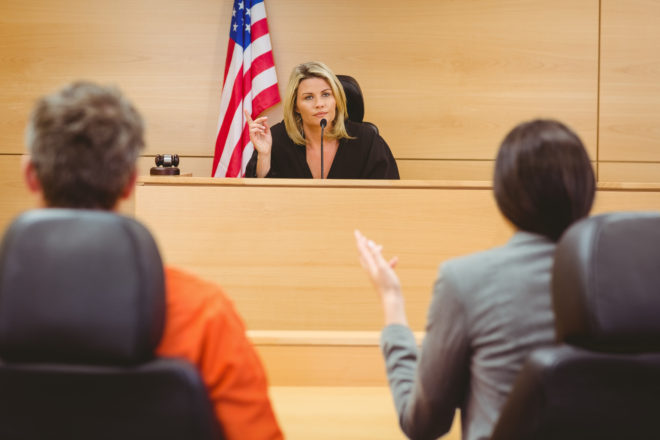

Call Attorney Marni Jo Snyder 24 Hours / 7 Days:
215.515.3360
Being charged with domestic violence is often a cause of confusion, anxiety, and embarrassment.
As an accused person, understanding the court process helps you know what to expect, which in turn helps you reduce anxiety. Read on for more information on what to expect during a domestic violence trial.
The initial appearance is the first time you go to court. The judge establishes your identity and informs you of the charges against you.
If you don’t have an attorney, the judge appoints one and sets conditions for your release on bail. If protective orders are deemed necessary, they’re issued against you.
Having an attorney at this juncture is beneficial to you as they would highlight reasons why you should be given favorable bail terms. If you hire a skilled attorney, they may secure your release on your own recognizance or negotiate terms that don’t keep you away from your children or other loved ones while the case is in court.
For a free legal consultation, call 215.515.3360
This is a hearing held before a judge to establish whether you have a case to answer. The District Attorney will call witnesses to support his decision to charge you. You’ll also be allowed to call witnesses to support your claims of innocence, though you may want to use the hearing as a chance to get a preview of their case and keep your defense confidential until the right moment.
The prosecutor needs to prove that it is more likely than not that a crime was committed and that you are the one who committed it. The judge is not going to decide whether the other side is lying or whether you are found guilty or innocent, however, having the right attorney can make all the difference in the final decision in your case. Your attorney should endeavor to show that the case against you has no grounds and shouldn’t continue or they can lock witnesses into lies and inaccuracies that you can disprove at trial. This is the most important part of the court process and attorney representation is invaluable!
Charges may either be held over to the trial court, reduced, or dropped. You may be facing a misdemeanor instead of a felony. The difference between a felony or misdemeanor can mean the difference between serving jail time and not, along with a host of other lasting consequences.
This is where you’ll be required to take a plea of guilty or not guilty. You could also take the plea of nolo contendere or no contest. Entering a nolo contendere plea, means you don’t wish to contest the charges. Under no circumstances should you enter a no contest plea without the advice of a criminal defense attorney.
If you take a guilty or no contest plea, the judge sets a date for your sentencing. Technically, a nolo contendere (no contest plea) is not an admission of guilt. However, the judge will sentence you as if you took a guilty plea.
If you plead not guilty, the judge sets the date for your trial. The benefit of working with an experienced attorney is that they will guide you in this process.
Domestic violence cases are either felonies or misdemeanors in the state of Pennsylvania. In the case of a misdemeanor, the case will be heard by a judge in what is known as a bench trial.
If, on the other hand, if you are charged with a felony, you’ll have the right to a jury trial. The job of your attorney during the trial is to establish reasonable doubt and get you acquitted.
Having an attorney will help you make the right arguments in a bench trial. One of the greatest benefits of having an attorney in a jury trial is that they’ll help with jury selection to ensure you have the fairest trial possible.
Domestic violence includes a wide range of crimes. The severity and effects of these crimes vary widely as do the strategies necessary to win the cases.
Allegations of economic control, emotional abuse, verbal abuse, and child abuse, violation of restraining orders, assault and murder are all in the range of domestic violence. Since the parties know each other, there is often a need to review text messages, social media, and other communications that are relevant to the case. These varied crimes and evidence often call for varied defense approaches and an experienced attorney who understands the nuances.
Get to know more about domestic violence court proceedings and your best defense options by contacting The Law Offices of M.J. Snyder. For a free consultation call 215-515-3360 today!
Call 24/7: 215.515.3360
Email: info@snyderlawyer.com
Fax: 215-376-6981
This website is for general informational purposes only. The act of sending an e-mail to the Firm or any attorney at the Firm, or submitting a form response or other materials through the website, will not create an attorney-client relationship. The only way to create an attorney-client relationship with the Firm is through a written agreement.Read More